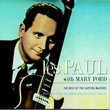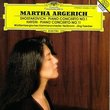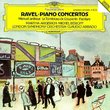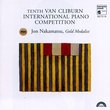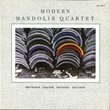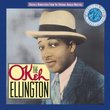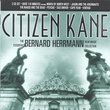| All Artists: Bartok, Kodaly, Leinsdorf, Bso Title: Concerto for Orchestra / Peacock Variations Members Wishing: 0 Total Copies: 0 Label: RCA Release Date: 3/9/1999 Genre: Classical Styles: Forms & Genres, Concertos, Historical Periods, Modern, 20th, & 21st Century, Symphonies Number of Discs: 1 SwapaCD Credits: 1 UPC: 090266330928 |
Search - Bartok, Kodaly, Leinsdorf :: Concerto for Orchestra / Peacock Variations
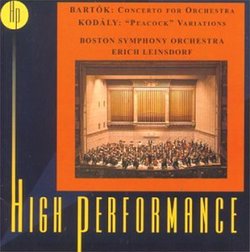 | Bartok, Kodaly, Leinsdorf Concerto for Orchestra / Peacock Variations Genre: Classical
Erich Leinsdorf's 1962 version of Bartók's Concerto for Orchestra has certainly come up with astounding vividness in RCA's latest 24-bit remastering--nowhere more so than in the irrepressible finale, which bounds alon... more » |
Larger Image |
CD DetailsSynopsis
Amazon.com Erich Leinsdorf's 1962 version of Bartók's Concerto for Orchestra has certainly come up with astounding vividness in RCA's latest 24-bit remastering--nowhere more so than in the irrepressible finale, which bounds along here with a giant confidence. Ultimately, though, Leinsdorf's interpretation is simply too slick to convince. Sure, the corporate virtuosity of the Boston orchestra is pretty dazzling--on a purely technical level, the standard of the playing is well up there alongside that on other vintage analogue versions from the Chicago Symphony under Fritz Reiner (RCA) and the London Symphony Orchestra with Antal Dorati (Mercury)--but the music's tangy wit, pathos, and (above all) homesick heartache elude the present team entirely. Fortunately, Ivan Fischer and his dazzling Budapest Festival Orchestra are on hand to provide the necessary antidote; their Philips version positively brims with creative flair and affectionate perception. Bafflingly, Leinsdorf's performance of Kodály's masterly and exhilarating Peacock Variations is something else again, a clear-headed, purposeful reading as sublimely poised as it is splendidly imposing. Once more, the 1963 sound possesses superb, ear-tingling realism. A frustratingly unequal coupling, then, but do try to hear the Kodály. --Andrew Achenbach Similarly Requested CDs
|
CD ReviewsApproachable Bartok from "The Aristocrat of Orchestras" Alan E. Southwick | Newport, RI USA | 11/12/2000 (5 out of 5 stars) "This recording is spellbinding. Commissioned by former conductor Serge Koussevitsky for the Boston Symphony Orchestra, this Bartok performance was the first recording produced by the RCA Layton/Mohr team for the BSO under Leinsdorf's direction. Erich Leinsdorf brought Austrian attention to detail to the orchestra after the laissez-faire approach of his predecessor, the marvelous Charles Munch. Having seen and heard both conductors of the Boston Symphony, I marveled at the way the board of directors navigated the treacherous waters of directorship selection transitioning from Munch to Leinsdorf. Leinsdorf took this already great orchestra down the path of tighter discipline and established a sheen of performance that could both be rapturously appealing and steely cold simultaneously! He reorganized the orchestral layout, splitting the first and second violins, placed the orchestra on stage risers as Koussevitsky had done, and achieved stunning recorded sound with RCA engineers through a number of tedious trial microphone placement sessions alluded to in the program notes. If you have never been to Symphony Hall in Boston to hear this great orchestra in one of the world's best music halls, these recordings convey everything worth the trip but the statues and gold leaf in the hall! The analog recorded sound is astonishing and the performances illuminating and vivid. Neither the Bartok or Kodaly are repertory warhorses, but these recordings do them great justice and deserve hearing. Obviously a labor of love, Nat Johnson and his team have done a great service in already bringing a number of these archival treasures to CD. I do hope they continue to mine the archives as effectively, and produce many more of the great recordings of the early stereo era from both Boston and Chicago which are present in the vaults at RCA/BMG! BRAVO!" How did I overlook this reissue? Jerry Engelbach | Brooklyn, NY | 06/01/2007 (5 out of 5 stars) "How did I overlook this reissue? It's been one of my favorite recordings for 45 years. I've worn out two LPs of it. This was the debut recording of Erich Leinsdorf with the Boston Symphony. It was issued with a free second LP called "The Golden years of the Boston Symphony," a little treasure of a sampler with excerpts from pieces conducted by the orchestra's previous great conductors. Leinsdorf's 1962 interpretation has always been for me the definitive one, despite the overwhelming popularity of Reiner's ground-breaking 1955 version. There's a classical unity to the Leinsdorf that I like, as opposed to Reiner's slightly more disjointed approach. The Leinsdorf has been criticized as lacking in warmth. While that may to some extent be true, it more than makes up for it with its incisive bite. It can be absolutely spine-tingling. It's almost unimaginable to equate the austere Leinsdorf, who when conducting barely moved his hands, with the incredible momentum and power he generated in this performance. Credit for this must be shared with the Boston Symphony itself, which had given the premiere of the "Concerto" and for whose successive members the piece was an important legacy." One of the last Ambassadors of a golden generation of direct Hiram Gomez Pardo | Valencia, Venezuela | 03/16/2007 (5 out of 5 stars) "
The presence of Erich Leindsdorf meant the Boston Symphony the beginning of the end of a golden period that began with Koussevitzky in 1922. This was a very talented director, who never matched in aristocratic flair or vertiginous incandescence of his predecessor Charles Munch but that certainly was light years far beyond the next titular or this Orchestra. In this sense Leindsdorf still conserved the charm, a wise approach and conviction around the music's meaning. Among his most reminded musical legacies, this version of Concerto for Orchestra has been considered for most audiences as one of his most pyramidal recordings. He conferred the Boston that spectacular and unique involving sound that featured the sound of the golden period of the American orchestras between 1920 and 1970. If you barely think about the presence of invaluable batons imported from Europe in that period, you will deduce why Stokowski and Ormandy n Philadelphia, Fritz Reiner in Cincinnati, Pittsburgh and Chicago, Szell in Cleveland, Kousevitzky and Munch in Boston, Toscanini founding the NBC Orchestra, Dimitri Mitropulos, Bruno Walter (with the presence in the podium of a legendary constellation of guest conductors such as Beecham, Barbirolli, Cantelli and Victor de Sabata among the most reminded) with the New York Philharmonic, Paul Paray in Detroit and Antal Dorati with the Minneapolis Orchestra conform an indisputable evidence that carves in relief the emerging of talented directors such as Bernstein in 1949 from Harvard, Thomas Schippers and Michael Tilson Thomas, among others famous names. Kilometers of ink have been depicted this fortunate fact that allowed to Boston Symphony be considered in those fifties as the most aristocratic of American Orchestra, with an undeniable European flair that certainly would vanish since the command of Leindsdorf' s successor. A version to collect among the most distinguished, although no other performance will be able to match with the terrific and out of this world version of Fritz Reiner conducting the Pittsburgh in the middle forties. " |

 Track Listings (23) - Disc #1
Track Listings (23) - Disc #1
